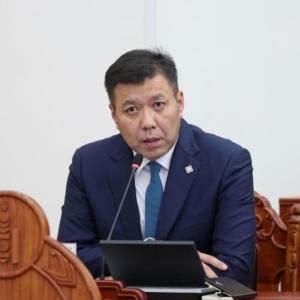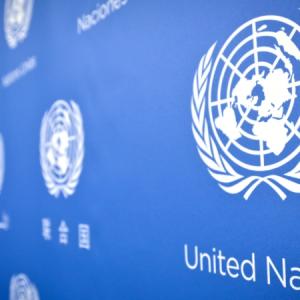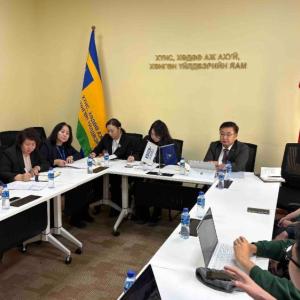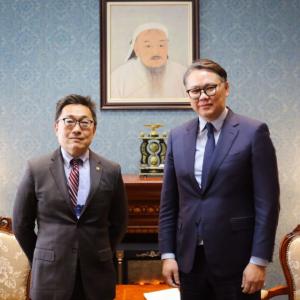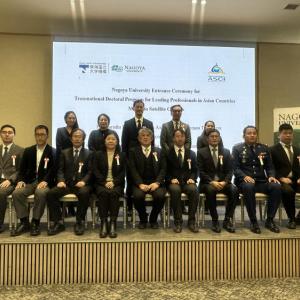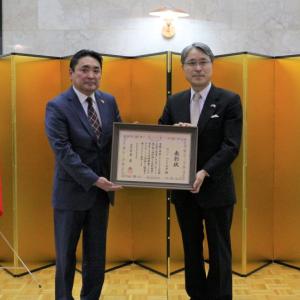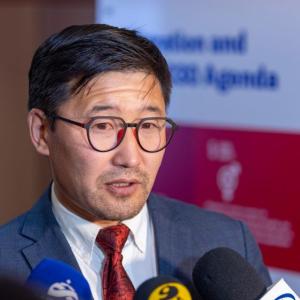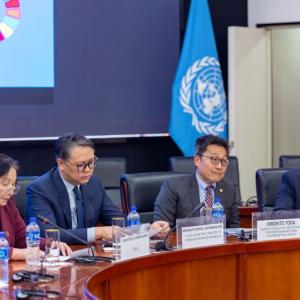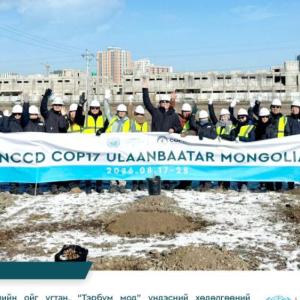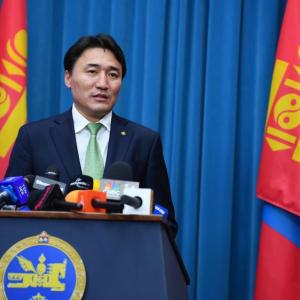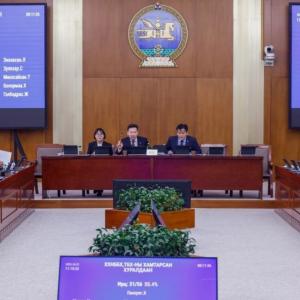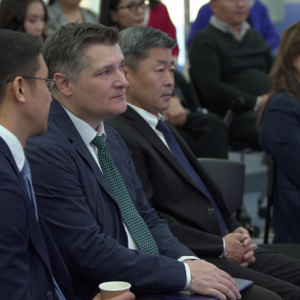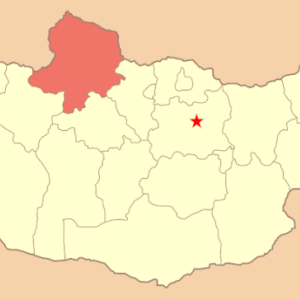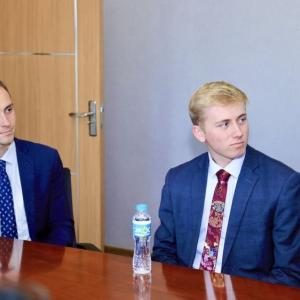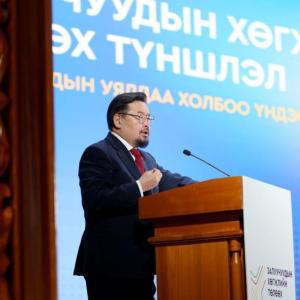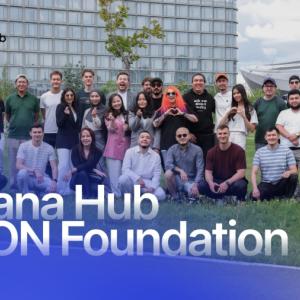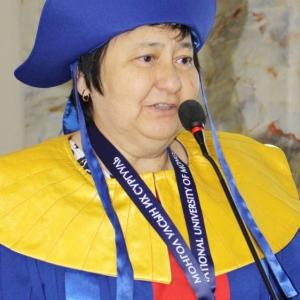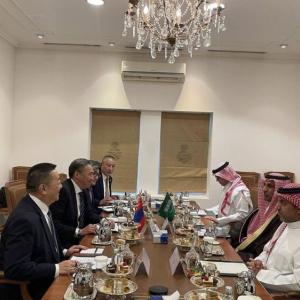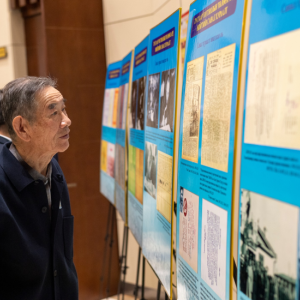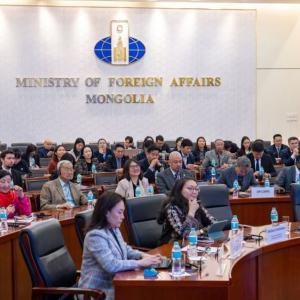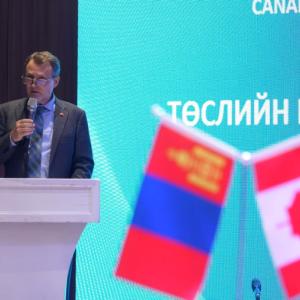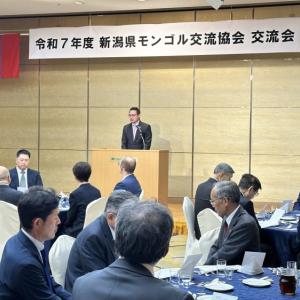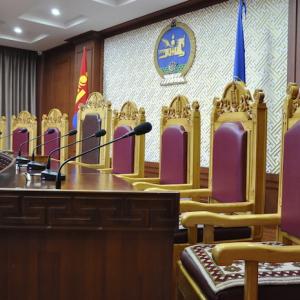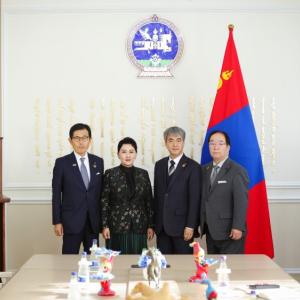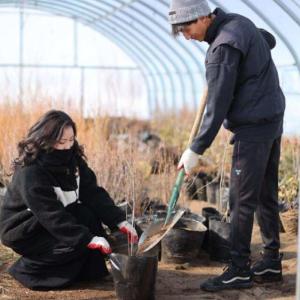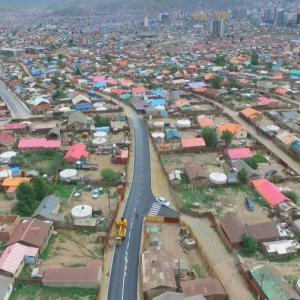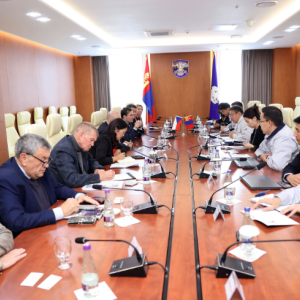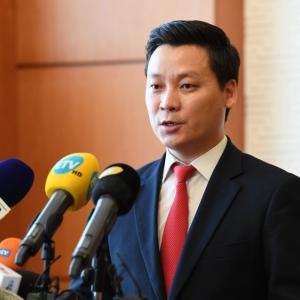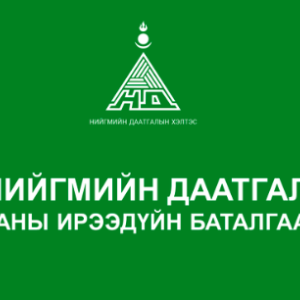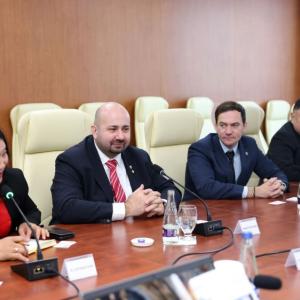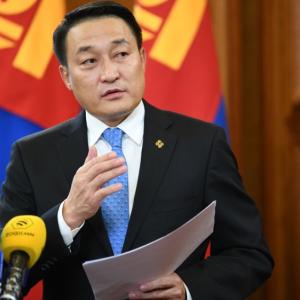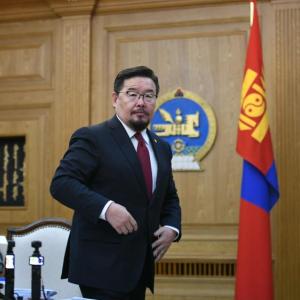Renowned Professor Jeffrey Sachs Delivers Lecture in Mongolia
Society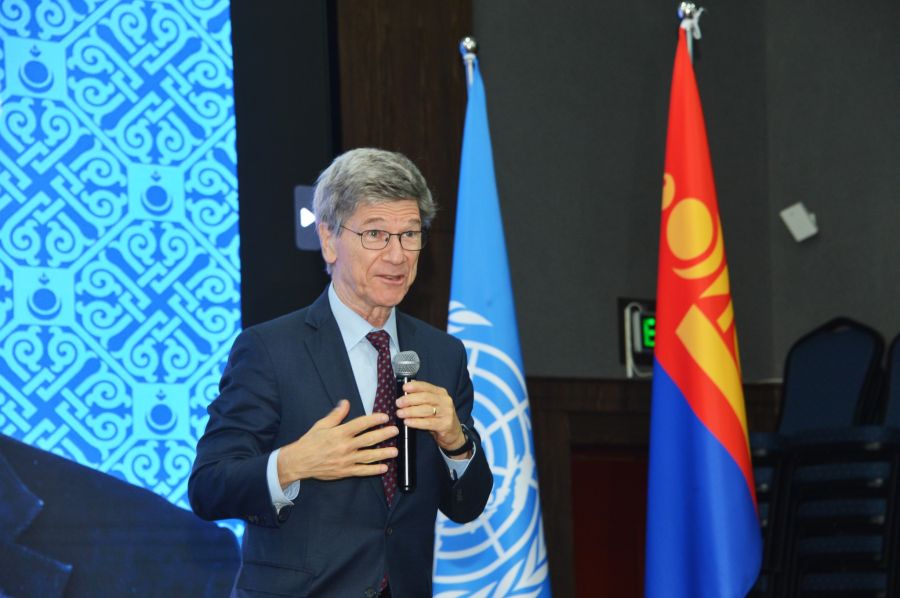
Ulaanbaatar, July 18, 2024 /MONTSAME/. At the invitation of the President of Mongolia, world-famous economist Jeffrey Sachs visited Mongolia on July 13-20, 2024. Mr. Jeffrey Sachs has received the 2015 Blue Planet Prize for environmental leadership and has been named one of Time magazine's 100 most influential world leaders twice.
On July 15, 2024, Mr. Jeffrey Sachs participated in the "Sustainable Futures for All: Focus on Inclusive and Sustainable Development, Financing, and Global Governance" discussion at the UN House in Mongolia and gave a lecture. The discussion was organized in anticipation of the UN Summit of the Future, which will be held in September 2024. The Summit will feature discussions on sustainable development, asset financing, international peace and security, the role of youth and future generations, and changes to world governance.
We briefly present the main issues mentioned in Professor of Columbia University Jeffrey Sachs's lecture.
Sustainable Development. Sustainable development can be achieved through concerted effort. This assertion is grounded in four key points: equitable distribution of wealth and increased returns on capital and investment, bridging the gap between the rich and the poor, environmental protection, and fostering peace and cooperation. Despite global acknowledgment of these issues over the past 22 years, no single country has fully realized sustainable development.
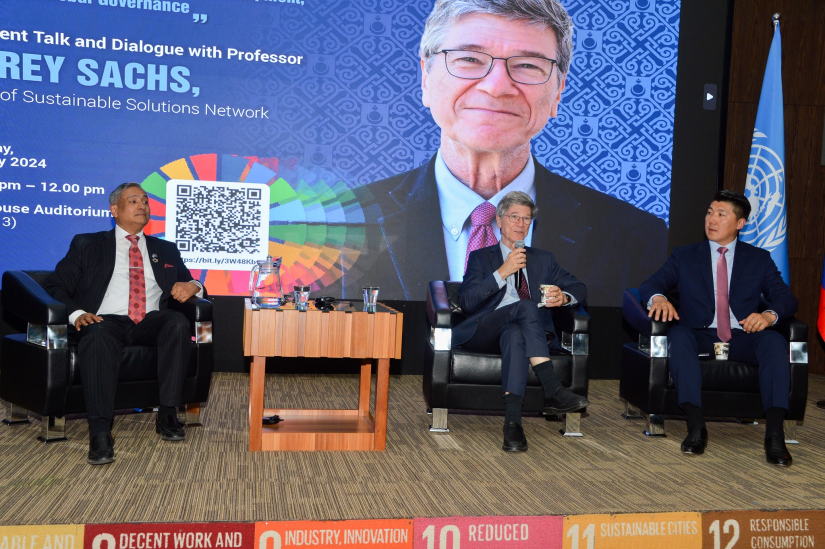
Economics. Poor countries often lack capital, human and natural resources, have low levels of education and scientific development, and suffer from inadequate infrastructure, and underdeveloped water and sanitation facilities. The development is achieved in investment-friendly places. We can’t reach the development goals if there is insufficient investment. It is wonderful that Mongolia neighbours China, which experiencing rapid economic convergence, although this is not universal among all countries.
Commonly around the world, children from poor households face challenges in accessing a quality education. This is particularly concerning in poorer countries, where only 25 percent of all children complete upper secondary education, and a significantly smaller percentage goes on to higher education. This lack of educational attainment hinders the implementation of policies necessary to achieve sustainable development.
Environment. Air, water, land, and natural resources are all exhaustible. Their sustainable use and preservation for future generations is a critical economic concern. While the harmful effects of burning coal, such as greenhouse gas emissions contributing to global warming, weren't fully understood for a century, the consequences are now clear. Doubling atmospheric CO2 through coal consumption could raise Earth's temperature by 5 degrees Celsius. Therefore, we need to adapt to climate change. We must discuss mitigation efforts to minimize the damage caused by these environmental disasters and explore solutions to overcome them.
Politics, multilateral cooperation. We live in a fragile world, with numerous negative events happening globally, especially security-related threats. For instance, the life of a U.S. presidential candidate was recently threatened. The USA is becoming increasingly dangerous, with robberies and shootings occurring on the streets. No need to wonder why. If there is a legal gun sale, it is obvious such things will happen, he shared his views on political sustainability and the importance of strengthening multilateral cooperation.
Professor further Sachs emphasized that the 17 goals for sustainable development are very meaningful and achievable. However, the lack of implementation indicates that the current methods and policy strategies need to be changed, as he advised. One type of solution does not work for all countries. Each nation needs a real plan instead of a nice slogan. Mongolia, in particular, needs staged research and planning on economic fundamentals. Additionally, maintaining good relations with neighboring countries is crucial. Implementing the Mongolia-Russian Federation-China economic corridor would be a wise strategy for Mongolia.
Achieving the Sustainable Development Goals needs adequate financing. Financing will unlock progress in critical areas, such as education, healthcare, energy transformation, land management, digital infrastructure, and urban development. Potential sources include foreign investment, long-term international loans, and the Belt and Road Initiative.
Regional cooperation is essential for maintaining peace. Seventy years ago, China outlined its Five Principles of Peaceful Coexistence. These are mutual respect for sovereignty and territorial integrity, mutual non-aggression, non-interference in each other's internal affairs, equality and mutual benefit, and peaceful coexistence. If every country adheres to these principles, global peace will be achievable. When countries accept each other's cultural traditions, treat them with respect, and avoid conflict, a more peaceful world is possible.
Professor Jeffrey Sachs emphasized that humanity is trying to have global governance for the first time, other than Chinggis Khaan. He pointed out a prevailing ignorance of the UN and a tendency to criticize it. However, the UN is a very important organization at the fundamental level. The UN has regulations, which are crucial documents. However, the UN's limited funding hinders its ability to resolve major global challenges. A world tax system could be a potential solution. For example, taxes on atmospheric pollution and ocean resource utilization could provide the resources needed to address many pressing issues. Additionally, establishing a UN parliament with representatives from all member states could be a valuable step towards more robust global governance.
In his lecture, Columbia University Professor Jeffrey Sachs addressed some key issues in youth development. He highlighted the potential benefits for Mongolia of developing joint programs with foreign universities, introducing foreign students to Mongolian culture, and enhancing the international recognition of Mongolian universities.
Mongolia could consider initiating a joint credit study program with foreign universities. This program would bring students from foreign countries to Mongolia for a three-month immersion experience focused on nomadic traditions, culture, and livestock husbandry methods. This initiative could lead to valuable research opportunities in the years to come. By doing so, foreign students can spend 7 days in the western region, 7 days in the Gobi Desert, and 7 days in the capital city to immerse themselves in Mongolian culture, heritage, and museums. They will have the opportunity to learn from Mongolians and their wisdom, which has shaped a significant part of world history. With proper invitations, many students would likely participate eagerly. This initiative could indeed make a substantial contribution to research. Every country requires advanced technology to thrive. Despite Mongolian universities not currently ranking among the world's top 1000, significant investment in one university could transform it into a competitive global research center. By allocating one percent of Mongolia's GDP towards this initiative, focused research could be conducted in critical sectors such as renewable energy. This strategic investment has the potential to result in substantial advancements and place Mongolia on the map in terms of global research and innovation. Concerns about climate change and livestock husbandry require attention and investment. Also, if domestic universities are recognized worldwide, knowledge will remain in the country.
After the lecture concluded, questions were posed and discussions sparked among notable figures including the UN Resident Coordinator in Mongolia, the Foreign Policy Adviser to the President of Mongolia, the Ambassador Extraordinary and Plenipotentiary of Germany in Mongolia, the Director General of MONTSAME Mongolian National News Agency, a Columbia University graduate, and students. Topics ranged from renewable energy and artificial intelligence to global ethics and international taxation, addressing numerous critical issues.
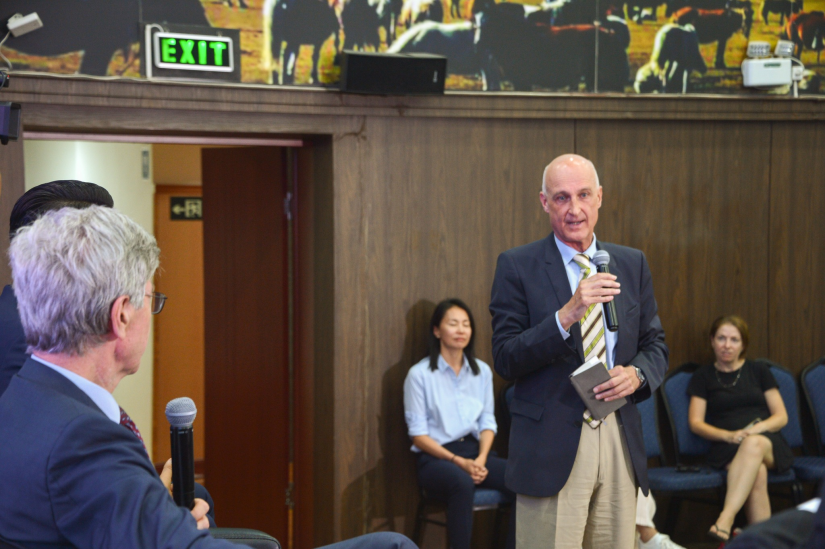
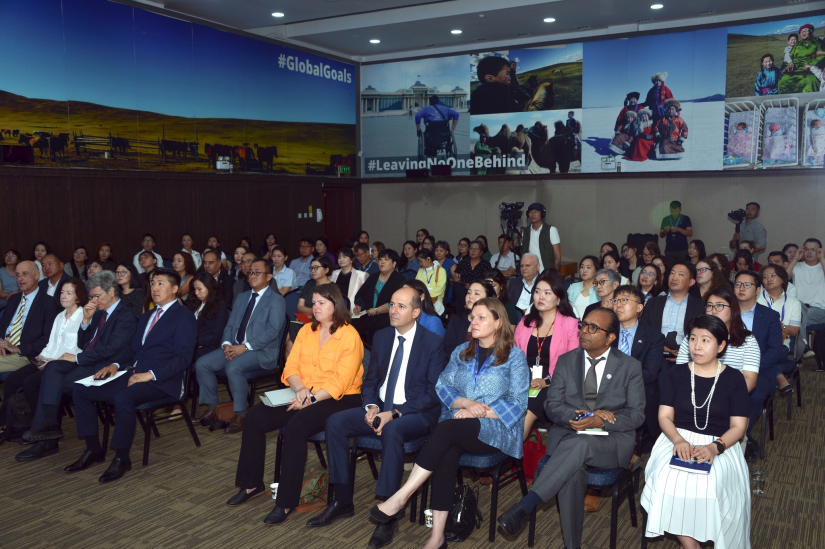


 Ulaanbaatar
Ulaanbaatar





